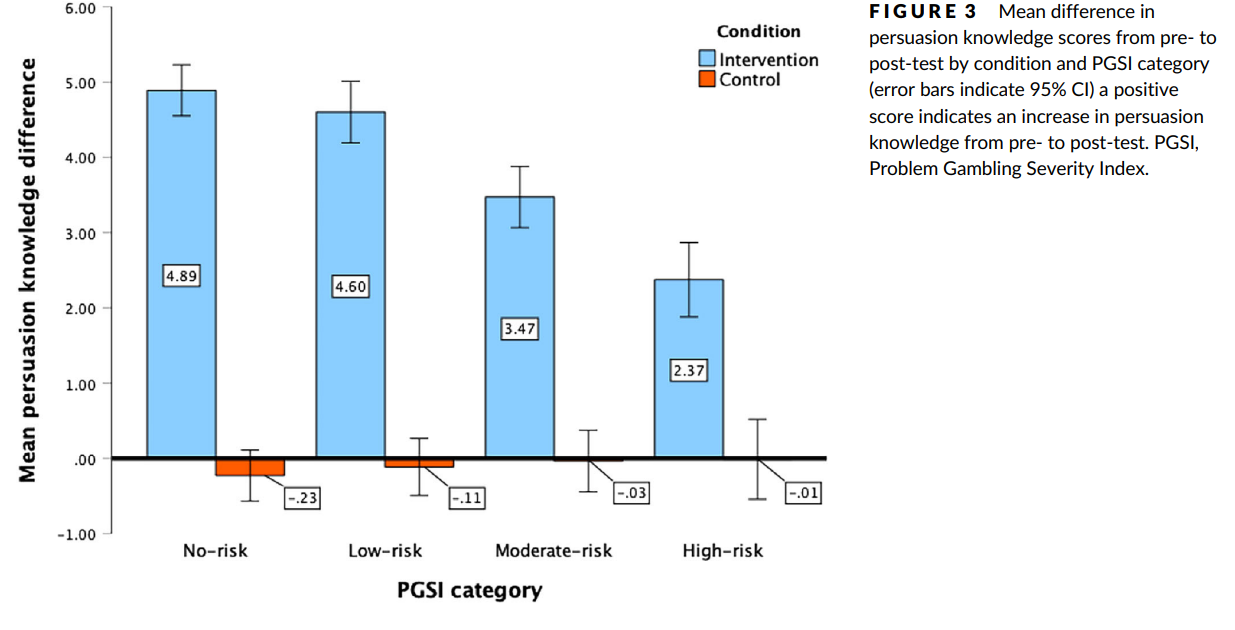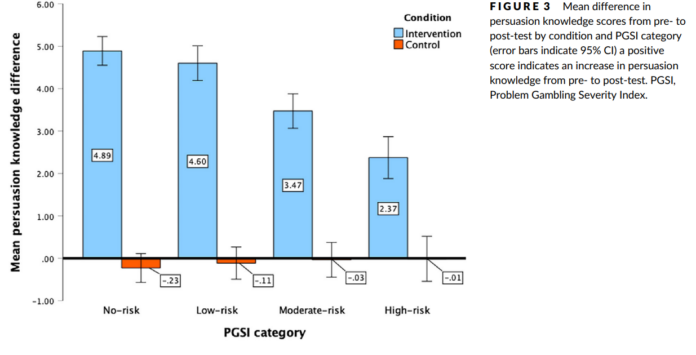The study, led by the Swansea University School of Psychology and published in The Conversation on 5 February, aimed to test the viability of countering gambling promotions to “combat the persuasive tactics [employed by operators],” Jamie Torrence, lecturer at Swansea University wrote.
It did so by helping the 1200 people involved in study to understand the persuasive techniques employed, including positively framing gambling, promotion offers and targeted advertising.
The study also considered their PGSI (Problem Gambling Severity Index) score, which determines how likely a person is to engage in risky behaviours.
Researchers sought to employ elements of ‘inoculation theory’, a concept that exposes people to weaker forms of harmful content with the aim of building an inherent resistance, similar to vaccine inoculations.
Five main marketing strategies flagged as persuasive to players
Five advertising strategies used by the gambling industry were flagged by researchers, these included demographic targeting, gambling embedded in sports, positive gambling portrayals, affiliate marketing and promotional offers.
The research paper said the industry had many more tactics, such as sign-up bonuses and “free bets” which can be covered by complex language and rules.
“The economic value of such promotions is often obscured by esoteric language and strict conditions that are difficult to interpret,” the paper read.
“Despite this lack of clarity, promotional offers appear to be particularly persuasive in facilitating more impulsive and riskier bets among those exposed to them,” it added.
Up to 21% of gamblers who reported engaging with gambling promotions at baseline had stopped doing so a month after the invention.
Researchers therefore believe that longer or repeated interventions could be an effective counter to the persuasive elements within gambling advertising, the study said.
Contributors to the study reported higher levels of scepticism against gambling ads after watching a video informing them of the various tactics deployed. That scepticism of gambling advertising persisted, although at lower levels, when contributors were re-tested one month later.
Gambling promotions counter measures
The study used a sample size of 1,200 participants, consisting of UK-based gamblers aged between 18 and 29 years old. Half were shown a gambling inoculative intervention video which was 7.2 mins in length. While the remainder control group were given a video on healthy eating.
During the inoculative intervention video a voiceover defined each of the sector’s five marketing strategies and emphasised their potential risks.
The study measured people’s “resistance” to gambling promotions via three concepts; scepticism, persuasion knowledge and disengagement with promotional offers.
Addressing the decline in participants’ scepticism and persuasion knowledge scores at the time of the follow-up test a month later, the study pointed to the contributors’ single exposure, as other inoculation campaigns use frequent exposures.

Short inoculation videos should be published on social media
The researchers have recommended that further studies using prolonged exposure to the intervention videos be conducted.
Also proposed is the creation of shorter inoculation video formats. These could include short-form videos designed for social media platforms.
The study recommends that inoculative gambling interventions “should be used and further improved on” in order to aid efforts aimed at the prevention of the adverse effects of gambling.
Studies exploring problem gambling behaviours in-depth are becoming more common, last week the UK Gambling Commission released a report that found certain gambling formats contain elevated risks. The report considered a players’ frequency of play and their socio-economic background to further consider the link between verticals and risky gambling behaviours.
Original article: https://igamingbusiness.com/gaming/gaming-regulation/uk-study-claims-to-inoculate-players-against-gambling-advertising/














